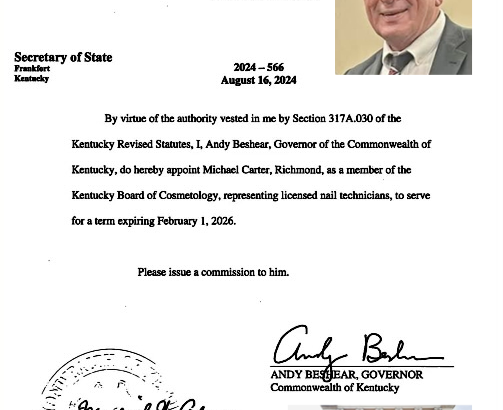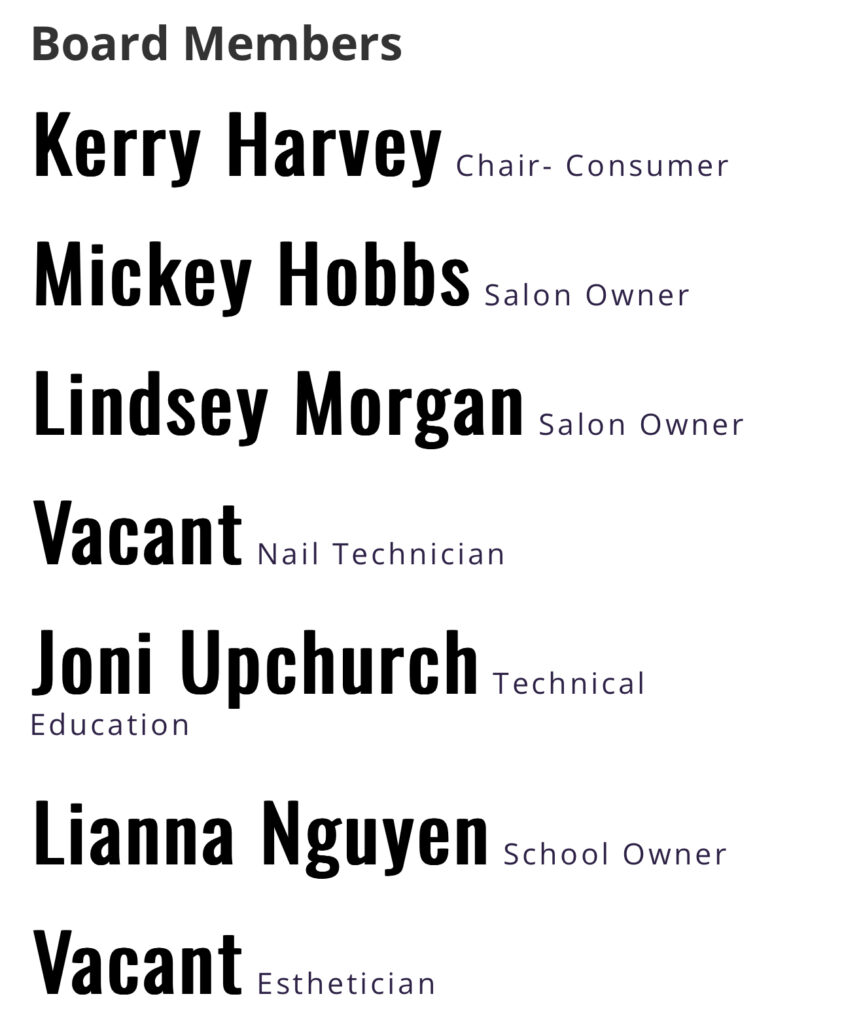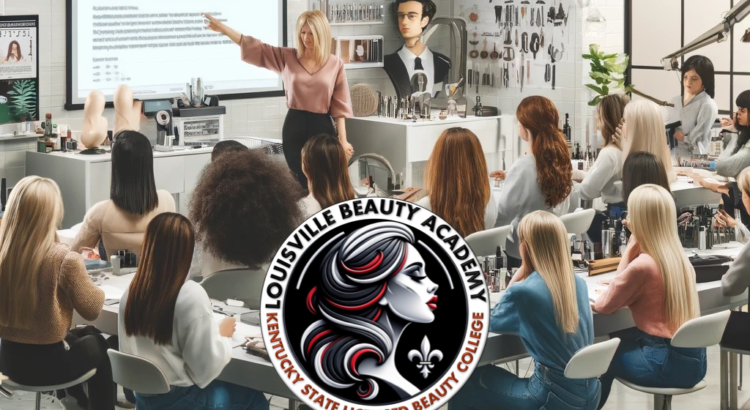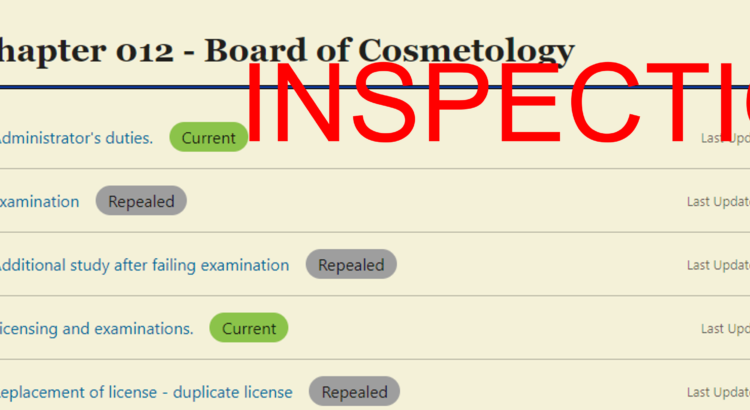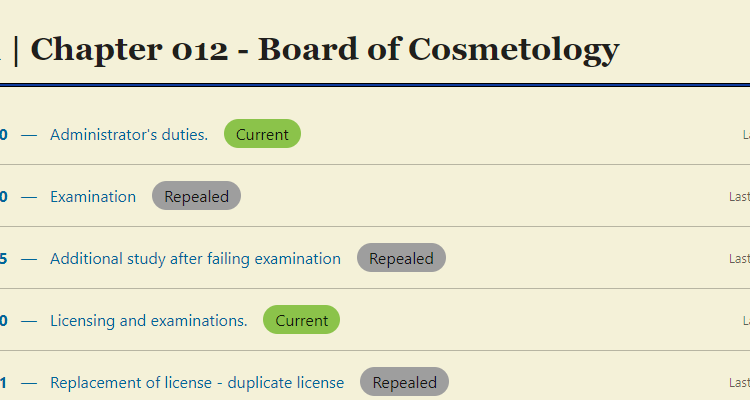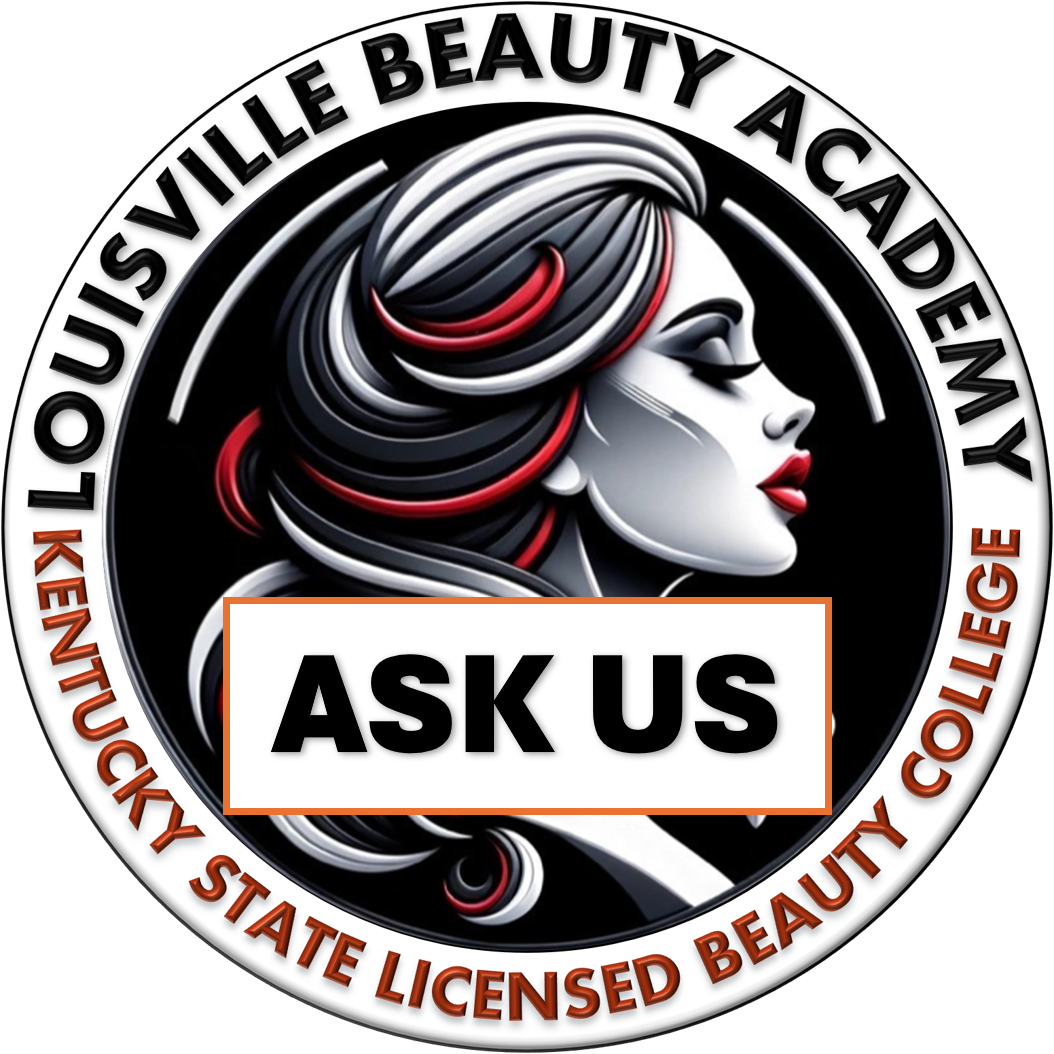Louisville Beauty Academy Update: Celebrating a Historic Appointment in Kentucky’s Beauty Industry
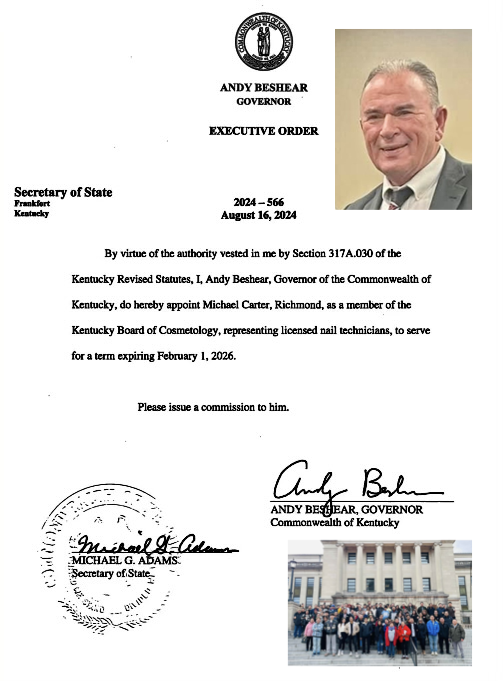
At Louisville Beauty Academy, a Kentucky State-licensed and State-accredited beauty college, we pride ourselves on ensuring our students stay informed and up-to-date with the latest changes in beauty licensing and law in Kentucky. Our commitment to student success goes beyond education; it includes keeping everyone in our community aware of critical regulatory updates that impact their careers.
As part of our ongoing efforts to support our students, we are pleased to share significant developments related to the Kentucky Board of Cosmetology. As of March 2024, Governor Andy Beshear signed Senate Bill 14 into law. This legislation is a monumental step forward in promoting inclusivity and diversity within the beauty industry in Kentucky. Senate Bill 14 expanded the Board of Cosmetology by adding two new seats—one for a licensed nail technician and another for an esthetician.
Today, we are excited to announce that Governor Andy Beshear, along with Secretary of State Michael Adams, has officially filled the first of these new positions. Michael Carter of Richmond, Kentucky, has been appointed as the newest member of the Kentucky Board of Cosmetology, representing licensed nail technicians. His appointment is effective immediately as of August 16, 2024, and he will serve a term that expires on February 1, 2026.
This appointment is a significant milestone for the beauty industry in Kentucky, particularly for nail technicians, as it ensures that their voice is heard at the state level. Michael Carter’s experience and dedication to the profession will bring valuable insights to the Board, benefiting all nail technicians across the Commonwealth.
As of August 19th, 2024 – KENTUCKY STATE BOARD OF COSMETOLOGY MEMBERS
At Louisville Beauty Academy, we understand how vital it is for our students and graduates to be aware of such changes. We are committed to providing timely updates and ensuring that our community remains informed about important regulatory shifts. We encourage all our students to stay engaged and understand how these changes may affect their professional journey.
As we await the appointment of a representative for estheticians, we are confident that these additions to the Board will further enhance the diversity and representation within the beauty industry in Kentucky. We will continue to keep our students informed of any further developments.
Stay tuned for more updates, and remember, Louisville Beauty Academy is here to support you every step of the way in your beauty career.
Louisville Beauty Academy remains dedicated to excellence in education and compliance with Kentucky’s beauty regulations, ensuring our students are well-prepared to thrive in their professional careers.
Disclaimer: The information provided in this update is shared as known and publicly available at the time of publication. Louisville Beauty Academy does not guarantee the accuracy, completeness, or timeliness of the information provided. For the most accurate and up-to-date information, please contact the Kentucky State Board of Cosmetology directly by emailing them at kbc@ky.gov.
